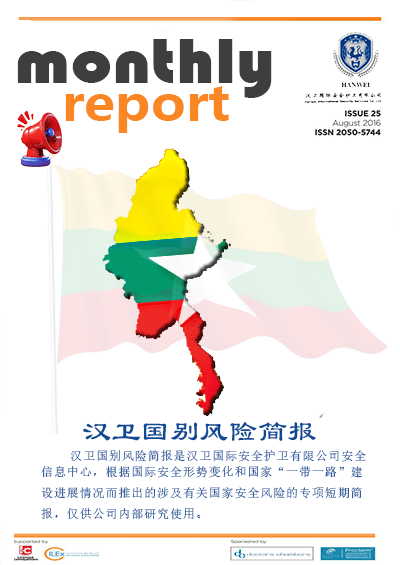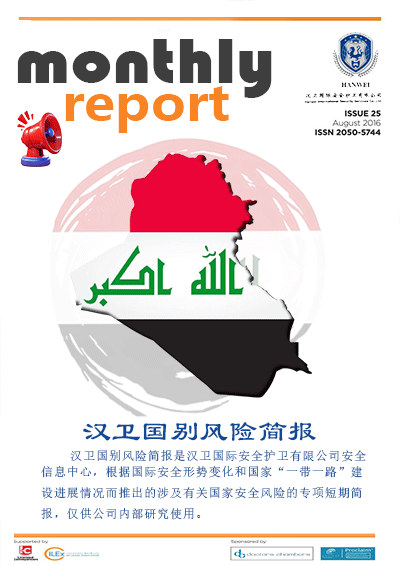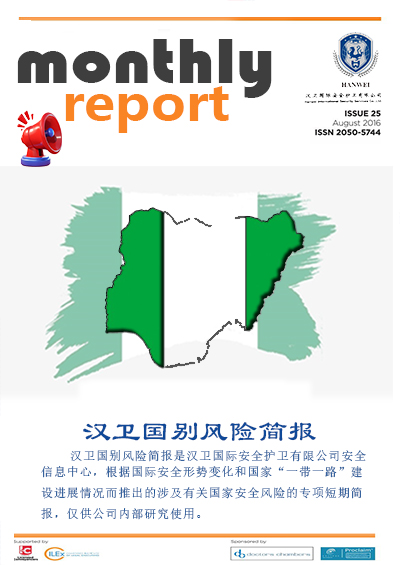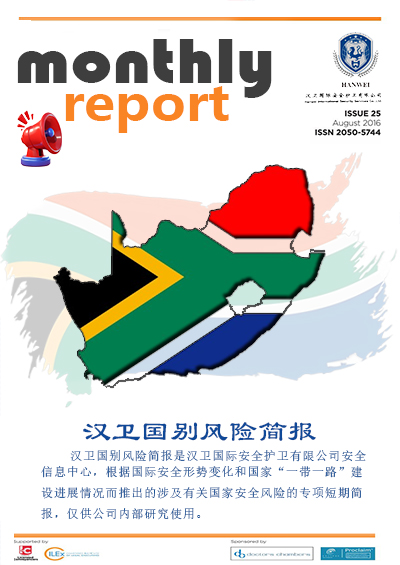Iraq Security Situation Overview October 2024
Researcher 006
According to monitoring reports from Hanwei International's security officers in Iraq and related media coverage, we have documented nearly 100 security incidents this month, with terrorist attacks, armed conflicts/armed assaults, and drone strikes having significant social impact. This report focuses on major social security incidents that may threaten the lives and property of Chinese citizens in Iraq, serving as a warning: safety first when abroad!
Hanwei International analysis suggests that escalating tensions in the Middle East have left Iraq "besieged on all sides," with internal unrest potentially dragging the country into a "vortex of war." Recently, as the Lebanon-Israel conflict intensifies, Iraqi militia groups like the "Islamic Resistance Movement" have frequently targeted Israeli and U.S. facilities. The frequency and locations of these attacks indicate that Iraqi militias are no longer confined to anti-Israel and anti-U.S. actions within Iraq but may be expanding their operations to broader regions. The "Islamic Resistance Movement" in Iraq is primarily composed of members from various militia factions such as the "Hezbollah Brigades" and the "Nujaba Movement," and is also an integral part of Iraq's security forces—the Popular Mobilization Forces (PMF). Thus, its frequent attacks could trigger larger-scale retaliation and conflicts within Iraq. Additionally, prolonged protests and demonstrations have erupted across Iraq, leading to violent clashes with security forces and significant casualties. Finally, since the Kurdistan Workers' Party (PKK) attacked a Turkish aerospace industry factory, Turkey has launched a series of high-intensity strikes, further degrading the PKK's combat capabilities and cross-border activities.
1. Iraqi Militia Groups Escalate Attacks, Primarily Targeting U.S. and Israeli Interests.
On September 30, 2024, at approximately midnight local time, a U.S. military base near Baghdad International Airport was hit by several rockets. Two were intercepted by local defense systems, but a third evaded defenses and landed near the U.S. Counterterrorism Service Command, with no casualties reported. On October 14, the U.S. military base at the Koniko gas field in Syria's Deir ez-Zor was targeted by drones launched by the "Islamic Resistance Movement," though the drones were intercepted before reaching the base. Recently, the "Islamic Resistance Movement" has intensified strikes on sensitive Israeli locations (see Figure 1), citing Israel's ongoing wars in Gaza and Lebanon as justification. On October 9, an Iraqi armed faction claimed responsibility for a drone attack on "critical targets" in Eilat, vowing to accelerate strikes against Israel. On October 8, the "Islamic Resistance Movement" claimed attacks on five key Israeli military bases using "upgraded Al-Qab cruise missiles" and drones. On October 12, it launched drones at a significant Israeli target in the occupied Golan Heights, and on October 30, it struck "a vital target in northern occupied territories," pledging to continue attacks at an "increasing pace." On October 9, Iraq's acting parliament speaker, Mohsen Al-Mandalawi, strongly condemned Israeli media for offensive remarks against Iraq's top Shia cleric, Ayatollah Ali al-Sistani, whose photo appeared on an Israeli hit list. The Sayyid al-Shuhada Brigade warned that any attack on al-Sistani would "cross all red lines," potentially galvanizing the "Islamic Resistance Movement" and plunging Iraq into full-scale war.

Figure 1 (Image source: CCTV News)
2. Amid Regional Conflicts, Iraq Witnesses Large-Scale Protests and Violence.
On October 18, hundreds of protesters gathered in Nasiriyah's Habubi Square, Dhi Qar Province, demanding the removal of the new provincial police chief, Major General Najah Al-Arabi, and the release of arrested demonstrators. Protesters accused Al-Arabi of launching arbitrary arrests and labeling them as "criminals." On October 18, security forces used smoke grenades to disperse the crowd, injuring one protester. On October 19, clashes escalated, with protesters throwing stones and security forces deploying tear gas, leaving 26 injured, including 17 security personnel and 9 protesters. On October 20, protests resumed. On October 24, dozens of protesters in Diyala Province blocked the Baghdad-Diyala road, opposing the "political quota" selection of local administrators. On October 25, residents in Khalatapa and Bani Sa'ad districts set up protest tents, and by October 26, demonstrations spread to six districts. Against the backdrop of Middle East tensions since the Israel-Gaza war, Iraq's domestic unrest risks further destabilizing the country and diminishing its regional influence.

Figure 2 (Image source: Iraqi state media)
3. Turkey's Airstrikes Against PKK Intensify, Threatening Border Regions.
On October 29, the U.S. NGO "Community Peace Teams" (CPT) reported that Turkey's airstrikes in Kurdistan surged to nearly 1,600 in the first nine months of 2024, far exceeding the 1,500+ recorded in all of 2023. On October 23, a PKK attack on a Turkish Aerospace Industries factory in Ankara killed 5 and injured 22. In response, Turkey launched 27 airstrikes in the Amadiya Mountains, killing 90 PKK members and displacing 170 villages, with 600 more at risk. On October 23–24, Turkish forces struck 29 PKK targets in northern Iraq and 18 in northern Syria, killing 59, including two leaders. On October 24, strikes in Sinjar, Nineveh Province, killed 5 members of the Sinjar Resistance Units (YBS), a PKK ally. On October 25, airstrikes in northeast Syria killed 4 and injured 10. On October 28, Turkey announced 23 PKK members killed in Kurdistan.

Figure 3 (Image source: CNN)
Yerevan Saeed and Sardar Aziz of the Arab Gulf States Institute in Washington (AGSIW) published an article titled "China's Rise in Iraq's Energy Sector: From Newcomer to Dominant Player," highlighting Chinese firms' growing dominance in Iraq's oil and gas industry. In 2024, Chinese companies won 10 of 13 energy block auctions, while Western firms hesitated due to bureaucracy, corruption, and security risks like militia attacks—challenges Chinese enterprises may soon face. On October 17, two Chinese engineers survived an armed attack by the Sawayed tribe in Maysan Province.
Recommendations for Chinese Enterprises and Individuals in Iraq:
1. Enterprises should enhance security preparedness. Strengthen intelligence gathering, establish risk assessment mechanisms, and develop contingency plans for terrorist attacks or civil unrest. Hire professional armed security for 24/7 protection of facilities and personnel, and install alarms, barriers, and reinforced doors. Train staff in emergency response and self-defense.
2. Individuals should monitor China's consular service website for Iraq travel advisories and stay vigilant. Given heightened Middle East tensions and Iraq's volatile security, avoid non-essential travel. Steer clear of sensitive areas, nighttime outings, and remote locations. Exercise caution in Karbala, Wasit, and 11 other provinces; defer travel to other regions.
Emergency contacts: Iraq police: 130; ambulance: 105; China's 24/7 consular hotline: +86-10-12308 or +86-10-65612308; Chinese Embassy in Iraq: +964-7901912315; Consulate in Erbil: +964-7515477820; Consulate in Basra: +964-7858618940.




